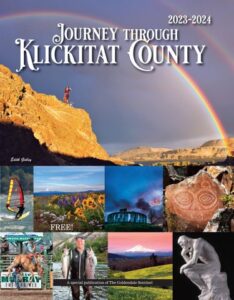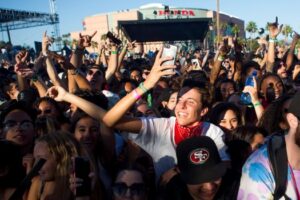Welcome to a journey through time as we delve into the iconic 1969 Harlem Cultural Festival lineup that not only entertained but also symbolized a pivotal moment in history. The year 1969 marked a cultural renaissance, and the Harlem Cultural Festival stood at the epicenter, showcasing legendary artists and electrifying performances. This festival, often referred to as the “Black Woodstock,” celebrated African American music, culture, and heritage. Join us as we unveil the incredible lineup featuring renowned musicians such as Nina Simone, Stevie Wonder, and The Staple Singers, who graced the stage and left an indelible mark on the cultural landscape. Let’s explore the significance and impact of this unforgettable event that continues to resonate decades later.
Introduction to the 1969 Harlem Cultural Festival
The 1969 Harlem Cultural Festival, often referred to as the “Black Woodstock,” was a historic music festival held in Harlem, New York. 1969 harlem cultural festival lineup showcased a stellar lineup of legendary African American musicians, entertainers, and prominent figures during a time of profound social and cultural significance.
Significance of the Event
The festival took place over six weekends in the summer of 1969 and attracted over 300,000 attendees. It provided a platform for black artists to showcase their talents and celebrate their culture amid a backdrop of civil unrest and calls for racial equality.
Notable Performers
Among the 1969 harlem cultural festival lineup were iconic artists such as Nina Simone, Stevie Wonder, Mahalia Jackson, and The Staple Singers, who delivered memorable performances that resonated with the audience and the zeitgeist of the era.
- Nina Simone: Known for her soul-stirring vocals and powerful activism, Nina Simone’s performance at the festival remains a standout moment in music history.
- Stevie Wonder: A young prodigy at the time, Stevie Wonder’s talent and charisma captivated the crowd, establishing him as a music icon.
- Mahalia Jackson: The revered gospel singer’s soulful rendition uplifted spirits and inspired hope during a tumultuous period.
- The Staple Singers: With their soulful harmonies and socially conscious lyrics, The Staple Singers left a lasting impact on the festival audience.

The Significance of the 1969 Harlem Cultural Festival
The 1969 Harlem Cultural Festival holds immense importance in the annals of music history as a pivotal event that celebrated African American culture and music during a crucial period of social change in the United States. Held over six weekends in Harlem’s Mount Morris Park, the festival featured a lineup of iconic artists across various genres, captivating an audience of thousands.
Celebrating African American Culture
The festival served as a platform for African American artists to showcase their talents and express their cultural heritage through music, dance, and art. It was a powerful celebration of identity, pride, and resilience during a time of racial tension and civil rights movements.
The 1969 Harlem Cultural Festival lineup included legendary performers such as Nina Simone, Stevie Wonder, Gladys Knight & The Pips, and many more, who delivered electrifying performances that resonated with the audience.
Impact on Music and Society
The festival not only entertained the crowds but also served as a catalyst for social change, promoting unity and equality through the universal language of music. It highlighted the talent and creativity of African American artists, challenging stereotypes and breaking down barriers.
The event showcased the richness of African American music and culture, influencing future generations of musicians and inspiring movements for social justice and equality. The legacy of the 1969 Harlem Cultural Festival continues to inspire and resonate with audiences around the world.
Exploring the Lineup of the 1969 Harlem Cultural Festival
The 1969 Harlem Cultural Festival was a groundbreaking event held over six weekends during the summer, celebrating Black music, culture, and pride. The festival featured an iconic lineup of legendary artists, making it a pivotal moment in history.
The Legendary Artists
Headlined by stars like Stevie Wonder, Nina Simone, and Gladys Knight & the Pips, the festival showcased the unparalleled talent in the Black community during that era.
Impact on the Community
The 1969 Harlem Cultural Festival not only provided entertainment but also served as a platform for social and political messages amidst the Civil Rights Movement.
- It empowered and inspired generations to come.
- Artists used their platform to advocate for change and unity.

Key Performers at the 1969 Harlem Cultural Festival
The 1969 Harlem Cultural Festival was a historic event that showcased a myriad of incredible performers. Among the standout artists who graced the stage during this iconic festival were:
Sly and the Family Stone
Sly and the Family Stone delivered an electrifying performance, blending funk, soul, and rock music seamlessly. Their set energized the audience and remains a highlight of the festival.
Nina Simone
The legendary Nina Simone mesmerized the crowd with her powerful vocals and poignant lyrics. Her performance was both soul-stirring and thought-provoking.
The Staple Singers
Known for their uplifting gospel tunes, The Staple Singers brought a sense of unity and joy to the festival. Their harmonious melodies resonated with the audience.
Cultural Impact of the Festival
The 1969 Harlem Cultural Festival lineup had a profound cultural impact that resonates to this day, showcasing the rich diversity and talent of the African American community.
Historical Significance
The festival served as a platform for celebrating black culture, music, and unity during a pivotal time in history, setting the stage for future generations.
Icons like Nina Simone and Stevie Wonder graced the stage, captivating the audience with their powerful performances.
Social Impact
The festival promoted social activism and empowerment, inspiring attendees to stand up against racial injustice and inequality.
- Empowering speeches by influential leaders like Malcolm X and Dr. Martin Luther King Jr. resonated with the crowd, fueling the civil rights movement.
Legacy of the 1969 Harlem Cultural Festival
The 1969 Harlem Cultural Festival, also known as the “Black Woodstock,” was a significant event that celebrated Black music, culture, and pride during a turbulent time in American history. Held over six weekends in Mount Morris Park, Harlem, the festival attracted over 300,000 attendees and showcased iconic performances by renowned artists.
Historical Significance
The festival served as a platform for African American artists to share their talent and stories, amplifying the voices of the Black community. It was a pivotal moment in the civil rights movement, promoting unity, empowerment, and cultural resilience.
The 1969 Harlem Cultural Festival lineup featured legendary musicians like Nina Simone, Stevie Wonder, Mahalia Jackson, and Sly and the Family Stone, among others, leaving a lasting impact on music history.
Cultural Impact
The festival not only showcased musical performances but also highlighted the richness and diversity of Black culture. It celebrated heritage, traditions, and artistic expression, fostering a sense of pride and belonging within the community.
- Black Excellence: The festival showcased the excellence and creativity of Black artists, challenging stereotypes and celebrating Black culture.
- Empowerment: By providing a platform for Black artists to shine, the festival empowered generations to embrace their cultural identity and pursue their passions.
Frequently Asked Questions
-
- What was the Harlem Cultural Festival in 1969?
- The Harlem Cultural Festival in 1969 was a series of music concerts held in Mount Morris Park in Harlem, New York City, featuring legendary African American musicians and entertainers.
-
- Who were some of the iconic artists that performed at the 1969 Harlem Cultural Festival?
- The lineup of the 1969 Harlem Cultural Festival included legendary artists such as Stevie Wonder, Nina Simone, Sly and the Family Stone, Gladys Knight & the Pips, and more.
-
- Why is the 1969 Harlem Cultural Festival considered iconic?
- The 1969 Harlem Cultural Festival is considered iconic due to its powerful lineup of artists at the peak of their careers, the celebration of Black culture and music, and its significance in highlighting the cultural and political climate of the time.
-
- What impact did the 1969 Harlem Cultural Festival have on music and culture?
- The 1969 Harlem Cultural Festival had a significant impact on music and culture by showcasing African American talent and promoting messages of unity, empowerment, and social justice through music and performances.
-
- Where can I learn more about the 1969 Harlem Cultural Festival?
- To learn more about the 1969 Harlem Cultural Festival, you can explore documentaries like ‘Summer of Soul (…Or, When the Revolution Could Not Be Televised)’ which delves into the festival’s history and its cultural significance.
Exploring the Majestic 1969 Harlem Cultural Festival Lineup
As we delve into the iconic lineup of the 1969 Harlem Cultural Festival, we are transported back in time to a pivotal moment in music and culture. The festival showcased a fusion of legendary artists like Stevie Wonder, Nina Simone, and B.B. King, creating a profound musical tapestry that reverberates through history. Through this journey, we witness the power of music to unite, inspire, and uplift communities amidst challenging times.
Reflecting on this historical event reminds us of the importance of celebrating diversity, cultural heritage, and the arts. The lineup not only entertained but also sparked conversations around social justice and equality, leaving an indelible mark on the fabric of American music history. The 1969 Harlem Cultural Festival lineup stands as a testament to the enduring legacy of Black excellence and creativity.




